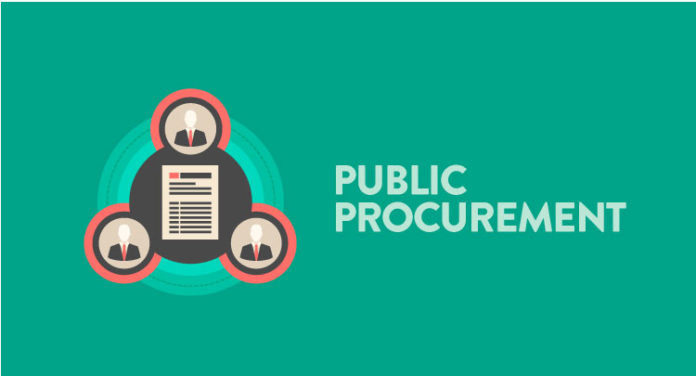In recent years, public procurement law has become a highly specialized and rewarding field within the legal profession. With governments and public entities across the globe spending billions of dollars on contracts, public procurement lawyers play a critical role in ensuring that these transactions are fair, transparent, and compliant with the law. For those seeking a dynamic legal career, public procurement lawyer jobs offer exciting prospects and career growth.
In this blog, we’ll delve into the details of public procurement lawyer jobs, the skills required, and how to secure a position in this ever-evolving field.

What is Public Procurement Law?
Public procurement law governs the process by which public sector organizations—such as governments, municipalities, and state-owned enterprises—acquire goods, services, and works from external suppliers. It ensures that public procurement processes are transparent, competitive, and fair, protecting both public funds and the interests of suppliers.
At its core, public procurement law involves understanding complex regulations, ensuring compliance with legal standards, and addressing disputes that may arise during the procurement process. Public procurement lawyers play an integral part in advising public bodies, handling procurement challenges, drafting and reviewing contracts, and managing the resolution of disputes.
The Role of a Public Procurement Lawyer
Public procurement lawyers specialize in advising both public sector organizations and private entities that bid for government contracts. They are responsible for overseeing and guiding the legal aspects of the procurement process from start to finish.
Key Responsibilities
The responsibilities of a public procurement lawyer vary depending on the role and the organization they work for, but they typically include:
- Contract Drafting and Negotiation: Public procurement lawyers assist in drafting, reviewing, and negotiating contracts related to the acquisition of goods, services, or works. These contracts must adhere to legal frameworks and standards.
- Advising on Compliance: Public procurement lawyers ensure that both public entities and private companies comply with procurement laws, regulations, and policies. They help organizations navigate complex legal requirements, minimizing the risk of legal challenges.
- Dispute Resolution: When disputes arise between bidders or between bidders and government entities, public procurement lawyers represent their clients in negotiations, litigation, or arbitration proceedings to resolve the issue effectively.
- Regulatory Guidance: Public procurement lawyers keep clients informed about the latest regulations, compliance requirements, and legal standards affecting procurement processes. This often involves staying up-to-date with changes in government procurement policies or international trade agreements.
- Training and Advocacy: In some roles, public procurement lawyers provide training for public officials or private entities, helping them understand procurement laws and best practices.
Types of Employers for Public Procurement Lawyers
Public procurement lawyers can work for a variety of employers, including:
- Government Agencies and Public Bodies: Many public procurement lawyers are employed directly by government agencies, local authorities, and other public sector organizations to advise on procurement strategies and ensure compliance with regulations.
- Private Law Firms: Some law firms specialize in public procurement law, representing both public and private sector clients involved in procurement processes.
- Private Corporations: Companies that frequently engage in government procurement, such as construction firms, defense contractors, or IT service providers, often employ in-house procurement lawyers to manage the legal aspects of bidding and contracting.
- International Organizations: Public procurement law is also a key area of focus for international bodies such as the United Nations or the World Bank, which manage large-scale public procurement projects in developing countries.
Why Choose a Career as a Public Procurement Lawyer?
Pursuing a career as a public procurement lawyer offers numerous benefits and challenges. This legal specialty is both intellectually stimulating and professionally rewarding. Here are some compelling reasons why public procurement law might be the right choice for you:
1. High Demand and Job Security
Governments and public institutions around the world spend vast sums on procurement. This makes public procurement law a vital area of practice, offering job security and a stable career path. As regulations evolve and public spending increases, the demand for skilled procurement lawyers is expected to continue growing.
2. Impactful Work
Public procurement lawyers help ensure that taxpayer money is spent efficiently and ethically. By ensuring transparency and fairness, they contribute to preventing corruption and fostering good governance. This means that public procurement lawyers can feel a sense of pride and fulfillment knowing that their work directly influences public services and infrastructure.
3. Diverse Career Opportunities
With public procurement law spanning a wide range of sectors—from construction and healthcare to IT and defense—lawyers in this field can enjoy diverse career opportunities. You might work on projects ranging from building public schools and hospitals to negotiating complex international trade agreements. The breadth of industries involved makes this field dynamic and ever-changing.
4. Competitive Salaries
Public procurement lawyers, particularly those working in private firms or with large government bodies, often earn competitive salaries. Depending on experience and location, compensation can be quite attractive, particularly for those in senior positions or with specialized expertise.
Skills Required for Public Procurement Lawyer Jobs
To succeed in public procurement law, certain skills and competencies are essential. These qualities not only help you perform effectively in your role but also set you apart in this competitive field.
1. Attention to Detail
Public procurement lawyers must possess a keen eye for detail. They deal with extensive regulations, contracts, and legal documentation, and any mistake could have serious consequences. Being able to spot inconsistencies, errors, or loopholes in contracts and compliance documents is crucial.
2. Strong Analytical and Research Skills
The ability to analyze complex legal documents, regulations, and procurement processes is vital. Public procurement lawyers need to be able to interpret and apply legal principles to specific cases, making research and analysis skills essential for their success.
3. Negotiation and Communication Skills
Public procurement lawyers often act as intermediaries between government entities and suppliers. This requires excellent negotiation skills to ensure favorable terms for their clients. Additionally, effective communication, both written and oral, is necessary when drafting contracts or presenting legal arguments.
4. Understanding of Government Procurement Regulations
A deep understanding of public procurement laws, policies, and international trade agreements is crucial. Lawyers in this field must stay updated on changes in legislation and case law related to procurement processes.
5. Problem-Solving Abilities
Procurement lawyers often face disputes and challenges during the procurement process. Whether handling a bid challenge or addressing contract breaches, they must find practical solutions to resolve issues while protecting their client’s interests.
How to Secure a Public Procurement Lawyer Job
If you’re interested in becoming a public procurement lawyer, here’s a roadmap to help you get started.
1. Pursue a Relevant Law Degree
Like any legal career, becoming a public procurement lawyer begins with obtaining a law degree from an accredited institution. It’s important to focus on courses related to commercial law, contract law, administrative law, and public sector regulations. Many law schools also offer specialization tracks in public procurement law.
2. Gain Experience in Related Areas
To build a career in public procurement law, gaining relevant experience is essential. Internships, clerkships, or work in law firms that specialize in public law or government contracting can provide valuable exposure to the field. You may also gain experience through roles in public administration, where procurement law is actively practiced.
3. Continue Education and Certifications
Public procurement laws are constantly evolving, so staying updated through continued education, certifications, and specialized training programs is vital. This could involve attending seminars, taking online courses, or obtaining certifications such as the Chartered Institute of Procurement & Supply (CIPS) qualification.
4. Network and Build Connections
Networking is key to advancing your career. Attend industry conferences, legal workshops, and procurement events to connect with other professionals in the field. These connections may lead to job opportunities or valuable partnerships down the line.
5. Look for Job Openings
Once you’ve gained experience and qualifications, actively search for public procurement lawyer job openings. These jobs can be found with government agencies, law firms, private companies, and international organizations. Make sure to tailor your resume to highlight your experience with procurement law, compliance, and contract negotiation.
Conclusion
Public procurement lawyer jobs offer rewarding and impactful career opportunities for those interested in public law and government contracting. With the growing demand for procurement professionals, this field promises long-term job security and an intellectually stimulating work environment.
By understanding the responsibilities, required skills, and career paths in public procurement law, you can take the necessary steps to pursue a career in this dynamic and important area of law. Whether working for a government agency, law firm, or private corporation, public procurement lawyers make a significant contribution to the effective and ethical use of public resources.
If you’re ready to take the next step toward becoming a public procurement lawyer, start by gaining the necessary education, building your experience, and networking with professionals in the field. With dedication and expertise, a successful career in public procurement law is within your reach.







Leave a Reply